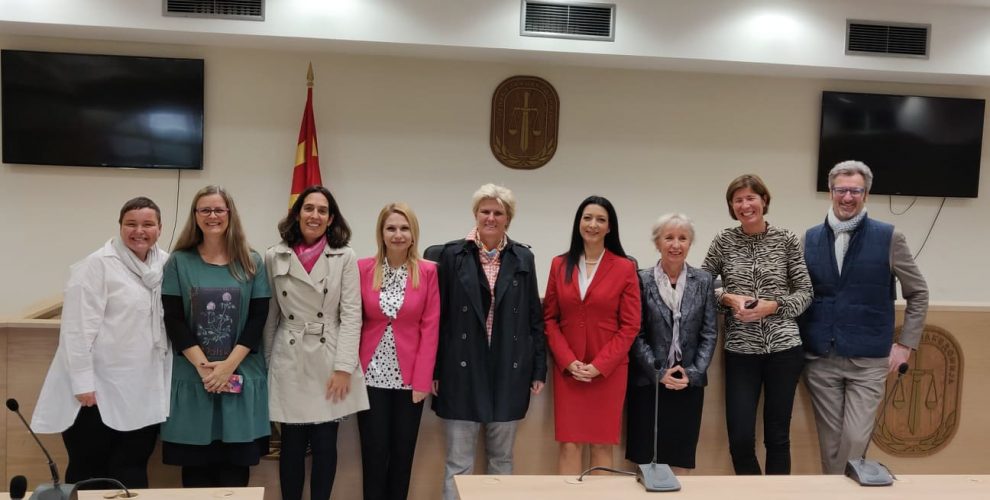Meeting European Section of the IAYFJM
at October 4th 2019 in Skopje (North Macedonia)
Present: Isabelle Soenen (Belgium), Lana Peto Kujundzic (Croatia), Joseph Moyersoen (Italy), Margreeth Dam (the Netherlands), Aleksandra Deanoska and Olja Ristova (North Macedonia), Katarzyna Kosciow-Kowalczyk and Magdalena Arczewska (Poland), Anne-Catherine Hatt (Switzerland).
Three presentations were held by our Macedonian hosts and professor Gordana Lazetic:
-the Macedonian law on justice for children,
– the Macedonian juvenile system in practice
-the amendments in the law on Justice for children.
It became clear that there is a big gap between theory and practice. There is a lot to win in practice just by upholding the laws and rules and by investing in the quality and education from juvenile judges, prosecutors and lawyers. Lana suggested North Macedonia can follow the example of Croatia by starting an association for Youth judges to strengthen their influence on politics and government.
It also became clear that the youth or juvenile judge has little status among the other judges in North Macedonia and to place a judge in the youth section is sometimes a form of degradation. This lack of status was recognized by several participants and was suggested as topic for next year’s meeting.
Training on judges for children. All the participants had filled in the questionnaires hand out by the Chronicle (and after that again by Aleksandra and Margreeth). Belgium is the only country where the (basic) training, with legal, pedagogical and psychological aspects for youth judges is mandatory. This is considered to be a good practice. Another good practice from Belgium is that their system of education is transparent, so that lawyers and other participants in the process can get informed by the curriculum of education from the judge.
All participants agree that a minimum standard should be that a basic multidisciplinary training is available for every youth judge and should not be limited to certain numbers of participants.
Implementation of the Guidelines. The participants do know that the guidelines have been hand out to officials, but do not know if they really use them. Croatia and Italy have had their associations translate the Guidelines so that all the people who work with these should be able to understand them.
Working language European Section. It is decided to use English as the working language of the European section because only a small part of the members is able to communicate in French. This requires a basic understanding of English for all the members of the European section. At the meetings their will allways be participants present who comprehend both English and French (as for example Isabelle Soenen and Alice Grunewald) and can help out those members who need help.
Meeting 2020, in 2020 the European section will meet in Warsaw (Poland) at the 2nd and 3rd of October. Everybody is grateful that the Polish members offer to organize the next meeting. Some topics that are mentioned for next year are NGO’s, can we work together and if yes how, and the status of the youth judge.
MD/2019/10/13


